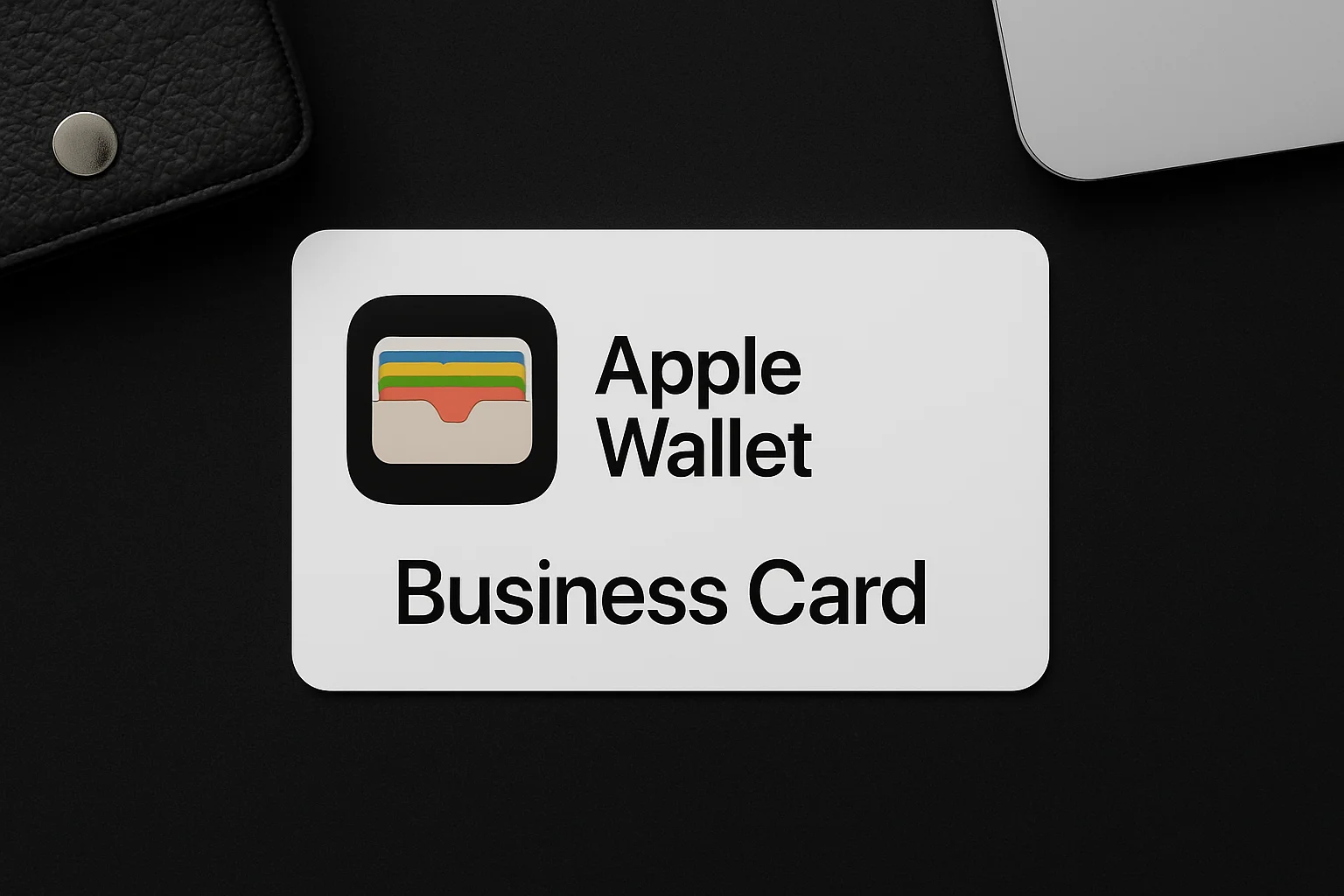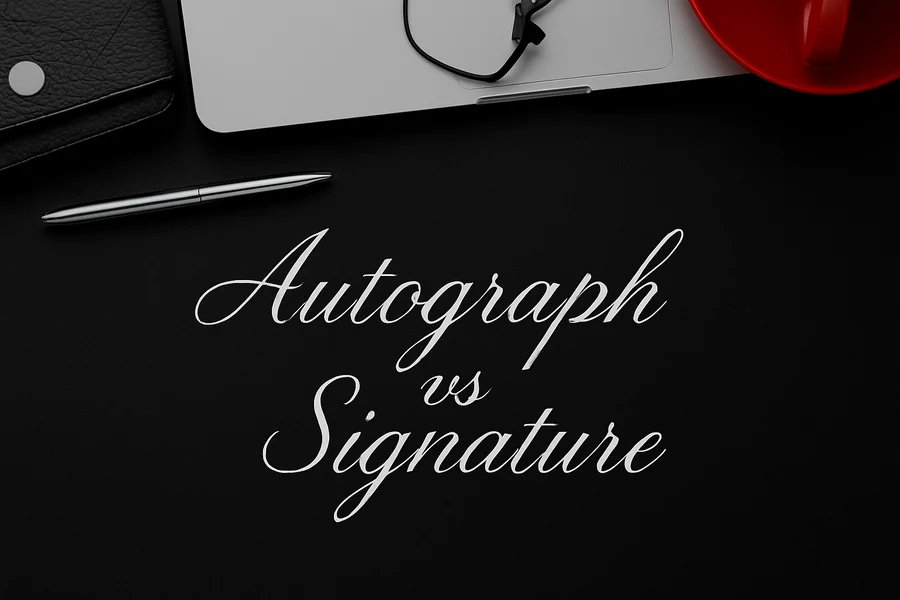Your signature is more than just a scribble on paper. It’s a legal stamp that binds you to contracts, authorizes payments, and proves your consent. When someone forges it, they’re not just copying lines — they’re stealing your identity and potentially your assets.
Many people use a calligraphy signature creator to design unique, personalized signatures that are harder to replicate. A distinctive signature with flowing elements and personal flourishes makes forgery more difficult and easier to detect. But even the most elaborate signature isn’t completely immune to fraud.
Let’s talk about what signature forgery actually means, what happens when you’re caught doing it, and what you can do if someone forges yours.
Table of Contents
What Is Signature Forgery
Signature forgery isn’t always what you see in movies — someone hunched over a desk with a magnifying glass, practicing loops and curves. Sometimes it’s crude. Sometimes it’s sophisticated. But it’s always illegal.
Definition of Signature Forgery and Its Types
Signature forgery is the unauthorized reproduction of someone’s signature with intent to deceive. Simple as that. The intent matters — accidentally signing your spouse’s name on a joint account form isn’t forgery. Doing it to empty their account? That’s a different story.
There are three main types:
Freehand simulation — the forger studies the signature and tries to replicate it by hand. Results vary wildly based on skill level.
Tracing — placing the original signature under a light source or paper and copying the exact path. This produces accurate results but often leaves telltale signs.
Cut-and-paste forgery — lifting a signature from one document and transferring it to another, either physically or digitally. Digital tools have made this disturbingly easy.
Each type leaves different evidence behind. That’s where forensic experts come in.
How to Recognize a Forged Signature: Key Signs
Spotting a fake isn’t always obvious, but there are red flags:
Pen lifts and hesitation marks — genuine signatures flow naturally. Forgers often pause, creating small stops or tremors in the line.
Speed variations — real signatures are written quickly, with consistent pressure. Forged ones tend to be slower, more deliberate.
Unnatural angles — when someone traces, the pen angle might not match how you naturally hold yours.
Inconsistent flourishes — if your signature has a specific loop or tail, a forger might get it almost right but not quite.
Different pen pressure — your usual pressure pattern won’t match if someone’s mimicking your style.
Document examiners use magnification, light analysis, and comparison with known samples. They can detect things invisible to the naked eye — microscopic tremors, ink layering, even paper indentations.
Motives for Signature Forgery: Reasons and Goals
Why do people forge signatures?
Financial gain tops the list. Forged checks, fraudulent wire transfers, unauthorized loans. Money drives most forgery cases.
Contract manipulation — changing terms of agreements, authorizing sales, or creating fake employment documents.
Identity theft — accessing bank accounts, credit cards, or government benefits.
Estate fraud — altering wills or property deeds to redirect inheritance.
Corporate fraud — executives forging board approvals, falsifying audit documents, or creating fake vendor agreements.
Sometimes it’s personal. A bitter divorce. A family dispute. Revenge. People forge signatures to hurt others, not just to profit.
Difference Between Signature Forgery and Imitation
Here’s where it gets nuanced.
Forgery requires intent to deceive and cause harm. You’re pretending to be someone else for illegal purposes.
Imitation might be done with permission or for legitimate reasons — a secretary signing routine documents with authorization, or someone practicing calligraphy techniques.
The law cares about intent. If your assistant signs your name on standard correspondence because you’ve authorized it, that’s not forgery. If your business partner signs your name to a loan you never agreed to, that’s textbook forgery.
Context matters. Authorization matters. Intent matters.

Criminal Liability for Forgery
Forge someone’s signature, and you’re not just breaking trust — you’re breaking federal and state laws. The consequences aren’t minor.
What Laws Regulate Signature Forgery
Federal laws cover forgery involving government documents, interstate commerce, and financial institutions. The U.S. Code Title 18 addresses various forgery offenses, with penalties ranging from fines to decades in prison.
State laws vary but generally classify forgery as a felony. Most states have specific statutes addressing:
- Check forgery
- Document forgery
- Identity document forgery
- Credit card forgery
The Uniform Commercial Code governs forged signatures on negotiable instruments like checks and promissory notes. Banks can be held liable if they honor forged checks.
Mail fraud statutes (18 U.S.C. § 1341) come into play when forged documents are mailed.
Wire fraud laws (18 U.S.C. § 1343) apply when forgery involves electronic communications.
The penalties stack. Forge a signature on a check, mail it, and use the proceeds for another fraud? You’re looking at multiple charges.
Types of Punishment for Signature Forgery
Forgery is typically a felony, though some states allow misdemeanor charges for minor cases.
Prison time ranges from one year to 20+ years, depending on:
- The amount of money involved
- Whether it’s a repeat offense
- The type of document forged
- Whether it crosses state lines
Fines can reach hundreds of thousands of dollars. Federal forgery convictions can carry fines up to $250,000.
Restitution — you’ll pay back what you stole, plus interest and fees.
Probation — sometimes offered instead of prison for first-time offenders in minor cases, but it comes with strict conditions.
Criminal record — a forgery conviction follows you. It shows up on background checks, affects employment, limits housing options, and can disqualify you from professional licenses.
Factors Affecting the Degree of Responsibility
Not all forgery cases receive identical sentences. Courts consider:
Amount of financial loss — stealing $500 gets treated differently than stealing $500,000.
Number of victims — forging one signature versus running a systematic fraud operation.
Position of trust — if you’re a lawyer, accountant, or family member with authorized access to documents, penalties increase.
Sophistication — crude forgeries might indicate opportunistic crime, while elaborate schemes suggest premeditation.
Criminal history — first offense versus repeat offender makes a huge difference.
Cooperation — pleading guilty and making restitution can reduce sentences.
Victim impact — did the forgery cause someone to lose their home? Their life savings? Courts factor in real-world harm.
Statute of Limitations on Forgery Cases
Time limits exist for prosecuting forgery, but they’re longer than many people think.
Federal forgery — typically five years from when the crime was committed or discovered.
State forgery — varies by state, usually between three and six years, but some states have longer periods for financial crimes.
Discovery rule — in many jurisdictions, the clock starts when the forgery is discovered, not when it occurred. Find a forged signature ten years later? Prosecution might still be possible.
No statute of limitations applies in some circumstances — particularly for ongoing fraud schemes or when the perpetrator leaves the jurisdiction.
Civil claims (suing for damages) often have separate, sometimes longer, time limits than criminal prosecution.
- Turn your name into a masterpiece — handcrafted by expert calligraphers
- Includes training to master your new signature fast
Consequences of Signature Forgery
The legal penalties are just the beginning. Forgery creates ripple effects that can destroy lives and businesses.
Financial Losses and Reputation Damage
For victims:
Direct financial loss — stolen money, fraudulent debts in your name, drained accounts.
Credit damage — forged loan applications or credit card signatures trash your credit score. Fixing it takes months or years.
Legal fees — proving the signature isn’t yours costs money. Lawyers, forensic examiners, court costs pile up.
Lost opportunities — while you’re fighting fraud, you might miss business deals, loan applications get denied, job offers fall through.
Time cost — thousands of hours dealing with banks, credit bureaus, police, courts.
For perpetrators:
Beyond fines and restitution, forgery convictions make you virtually unemployable in finance, law, healthcare, education, or any field requiring bonding or licensure.
Banks won’t give you accounts. Credit becomes impossible. Even apartment rentals get denied.
Your name becomes associated with fraud. Google never forgets.
Legal Consequences for Victim and Perpetrator
Victims face:
Presumption of validity — signatures are assumed genuine until proven otherwise. You carry the burden of proof.
Bank disputes — financial institutions might fight reimbursement, claiming you were negligent or authorized the transaction.
Contract enforcement issues — even with proof of forgery, unwinding contracts takes time and legal action.
Identity theft complications — if the forgery was part of broader identity theft, you’re dealing with multiple fraud vectors simultaneously.
Perpetrators face:
Criminal prosecution — prison, fines, probation, restitution.
Civil lawsuits — victims can sue separately for damages, pain and suffering, punitive damages.
Professional consequences — losing licenses, disbarment for lawyers, revocation of medical licenses, termination from jobs.
Immigration issues — non-citizens convicted of forgery face deportation.
Collateral consequences — loss of voting rights in some states, inability to serve on juries, restriction on firearm ownership.
Impact on Business Reputation
For businesses, forgery can be catastrophic.
Customer trust evaporates — if clients learn that forged signatures were used in contracts or financial documents, they leave.
Investor confidence tanks — stockholders and potential investors see forgery as evidence of poor internal controls.
Partnership dissolution — business partners might have grounds to terminate agreements.
License suspension — companies in regulated industries (finance, healthcare, law) can lose operating licenses.
Contract invalidation — agreements signed with forged authorization are void, creating legal chaos.
Media coverage — forgery cases often make news, creating lasting reputational damage.
Recovery takes years. Some businesses never recover.
Psychological Consequences
People overlook the emotional toll.
For victims:
Violation of trust — especially when the forger is a family member, friend, or colleague. The betrayal cuts deep.
Anxiety and paranoia — you start questioning everything. Every signature, every document, every transaction.
Stress-related health issues — high blood pressure, insomnia, depression are common among fraud victims.
Relationship damage — if a family member was involved, holidays become minefields. Marriages strain under the pressure.
Loss of control — someone used your identity without permission. That feeling of helplessness lingers.
For perpetrators:
Guilt, shame, and the knowledge that relationships are permanently damaged. Even after serving time, the stigma remains.
These aren’t abstract concepts. Real people lose sleep, develop anxiety disorders, and struggle with trust for years after forgery cases resolve.

Your Rights When You Suspect Forgery
Suspect your signature has been forged? Act fast. Time matters.
How to Act on Suspicion
Document everything immediately:
- Photograph or scan the document with the suspected forgery
- Note the date you discovered it
- Write down exactly how you learned about it
- Gather any authentic signature samples you have
Don’t confront the suspect alone — if you know or suspect who did it, confronting them can compromise the investigation or put you at risk. They might destroy evidence.
Secure your accounts — if the forgery involves financial documents:
- Contact your bank immediately
- Freeze accounts if necessary
- Place fraud alerts on credit reports
- Change PINs and passwords
Notify affected parties — if the forgery appears on a contract, inform the other party that you didn’t sign it. Do this in writing.
Preserve the original document — don’t handle it more than necessary. Fingerprints and other forensic evidence might be present.
Speed matters. Many financial institutions have strict reporting deadlines — often 30 to 60 days — for unauthorized transactions. Miss the deadline, and you might be stuck with the charges.
Right to Signature Examination
You have the right to demand professional examination of questioned signatures.
Forensic document examiners are trained specialists who analyze handwriting, ink, paper, and signing patterns. They’re not handwriting analysts or graphologists — they’re scientists who testify in court.
What they examine:
- Line quality and pen pressure
- Letter formation and connections
- Speed and rhythm of writing
- Natural variation (genuine signatures vary slightly; forged ones are often too perfect)
- Pen lifts and hesitation marks
- Stroke direction and sequence
How to get an examination:
Private examination — hire a certified forensic document examiner. Cost ranges from $1,500 to $5,000+, depending on case complexity.
Court-ordered examination — if you file a lawsuit or criminal charges, you can request that the court order an examination.
Bank or company examination — financial institutions often have fraud departments that conduct initial examinations.
Look for certification — qualified examiners have credentials from organizations like the American Board of Forensic Document Examiners (ABFDE) or similar bodies.
Their reports carry weight in court. A solid forensic examination can make or break your case.
Contacting Law Enforcement
Which agency to contact depends on the type of forgery:
Local police — for most personal forgery cases (forged checks, contracts, personal documents).
FBI — for forgery involving:
- Interstate commerce
- Federal documents
- Large-scale fraud operations
- Banks or financial institutions
Secret Service — investigates financial crimes, particularly those involving currency, bonds, and financial institution fraud.
Postal Inspection Service — if forged documents were mailed.
State Attorney General — for consumer fraud or patterns affecting multiple victims.
When you file a report, bring:
- The document with the suspected forgery
- Examples of your genuine signature
- Timeline of events
- Any evidence you’ve gathered
- Names of potential suspects (if known)
Be prepared for: Investigations take time. Months, sometimes years. Police prioritize based on severity, evidence quality, and resource availability. Small-dollar forgeries might not get immediate attention.
Get a case number — you’ll need this for insurance claims, bank disputes, and civil lawsuits.
Protecting Your Rights in Court
If the case goes to court — whether criminal prosecution or civil lawsuit — know your rights.
In criminal cases (as the victim):
- Right to be notified of proceedings
- Right to provide victim impact statements
- Right to restitution (the court can order the perpetrator to pay you back)
- Right to be present at hearings
- Right to consult with prosecutors
In civil cases (when you sue):
Burden of proof — you must prove the signature is forged. This typically requires:
- Expert testimony from forensic document examiners
- Evidence of your whereabouts when the signature allegedly occurred
- Proof that you didn’t authorize the signature
- Demonstration of damages
Discovery rights — you can demand documents, depositions, and other evidence from the opposing party.
Right to jury trial — in most civil fraud cases, you can request a jury.
Potential damages — you can seek:
- Actual damages (money lost)
- Consequential damages (additional losses caused by the forgery)
- Punitive damages (to punish deliberate fraud)
- Attorney fees (in some jurisdictions)
Statute of limitations — civil claims usually have separate time limits from criminal prosecution. Don’t wait.
Consider settlement — many forgery cases settle before trial. Weigh the costs of litigation against potential recovery.
Hire specialized counsel — forgery cases involve complex evidence and expert testimony. General practice attorneys might not have the necessary experience. Look for lawyers with fraud or financial crime backgrounds.

“Working with a professional to secure my signatures was one of the best decisions I’ve made for my business.”
Thomas H., Small Business Owner
Signature forgery isn’t a victimless crime or a simple mistake. It’s identity theft with a pen. Whether you’re protecting yourself from becoming a victim or dealing with the aftermath of forgery, understanding the crime, the laws, and your rights makes all the difference.
Your signature represents you in the legal and financial world. Protect it, question documents carefully, and act immediately if something looks wrong. The law provides remedies, but only if you use them.






